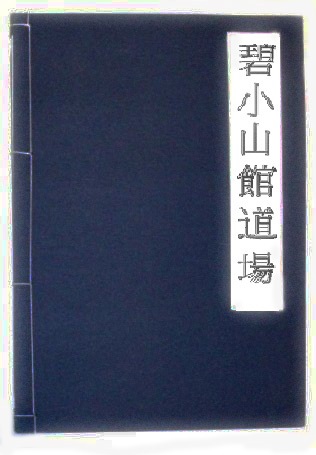
Reigi/Reishiki (sharing of courtesy)
This dojo is fairly informal, but, as with all things, there are certain expectations of conduct critical to keeping practice safe and enjoyable for everyone. In Japan, it is said of training that ‘the way begins and ends with courtesy.’ This should extend to:
Yourself
(without self-respect no amount of instruction is useful)
- By keeping fit, clean and healthy (this includes keeping hair and nails neat and manageable)
- By consuming food and drink responsibly, no one under the influence of alcohol or drugs will be allowed to participate in training
- By feeding your mind through study and learning
- By practicing on your own. This helps keep your body fit, and it also keeps class time about polishing current skills and learning new ones, rather than being strictly remedial. In only five minutes Kote Waza, Taisabaki and Atemi can be completed at a moderate pace- create the habit of practice early
- By seeking nonphysical methods of resolving conflict
Others
(fellow students, guests, etc.; extending respect to others is
critical in developing strong training relationships.)
- By wearing clean keikogi (training uniform). It can be quite hard to work with a partner who smells like livestock!
- By not wearing jewelry on the mat - this could injure you and your training partners.
- By taking a general approach of not doing anything to another that you would not want done to you, if your roles were reversed - and in training they always will be!
Facilities
(the physical space of the dojo, these are things which allow the
school to run efficiently)
- By performing Soji (cleaning/maintenance- such as vacuuming/sweeping and wiping down the mats, dusting, etc.) every class, we help keep the space pleasant for all members.
- By paying dues on time- these fees keep the dojo operating (utilities, insurance, etc.) Dues are not payment to an instructor.
Instructor
(because instructors impart knowledge based on years of training,
study and research)
- By attending class as scheduled (notifying when that is not possible), arriving on time, and being prepared for class at the appointed time.
- By asking being present (not distracted), attentive, engaged and asking questions.
In addition to the guidelines above, please observe the following while in the dojo:
- Arrive 10 minutes before class is scheduled to start. At the start of class you should be completely changed and have the appropriate training materials with you (benran or notebook, buki if being used, etc.)
- Perform a tachi rei (standing bow) when entering and leaving the dojo. This ‘formality’ provides a moment to clear the mind and focus on the training ahead rather than traffic, work, or other concerns.
- Phone ringers should be turned off (or set to vibrate if you need to be reached urgently.)
- Respect your tools. Keikogi (training uniforms) should be clean and mended. Buki (weapons) should be in good condition and in the proper place when not in use.
- Proper sitting positions are seiza (buttocks on heels, feet flat), kiza (buttocks on heels, toes tucked under), and anza (legs crossed). Sitting with legs outstretched, resting weight on hands or elbows and leaning against walls are not easy positions to defend from (and are considered quite rude.)
- When the instructor demonstrates, sit quietly in seiza. After demonstration, bow to the instructor, then to a partner and begin practice.
- When working in a group of three, if you are not Tori (the ‘taker’ or ‘winner’) or Uke (the receiver), you should be seated close to your group, but out of the way of techniques.
- Upon hearing a clap, immediately bow to your partner and line up in seiza to receive further instruction.
- Do not touch anyone else’s buki without permission.
- There is no smoking in the dojo at any time.
- Please do not chew gum during practice.
- Eating on the mat is strongly discouraged*- when it happens, clean the area thoroughly.
- While watching class, do not distract people who are participating.
- You are responsible for ensuring that guests are aware of proper conduct in the dojo and are not disruptive.
The underlying goal of these rules is not to discourage enjoyment, it is to maintain safety while practicing together. This list doesn't cover every eventuality but should, at least, provide a baseline set of standards to which we hold ourselves accountable.
*
The exceptions to this is special occasions such as Keiko
Osame (final
-formal- practice of the year/ end of year celebration) and during
seminars- cha no yu (tea ceremony), Kaki Koshu Kai (summer practice
intensive, during which afternoon meals may eaten in the dojo), etc.
Dictionary | HANDBOOK | Media | Links | Blog | Contact

Copyright © Aiki Budokai/Aoi Koyamakan
